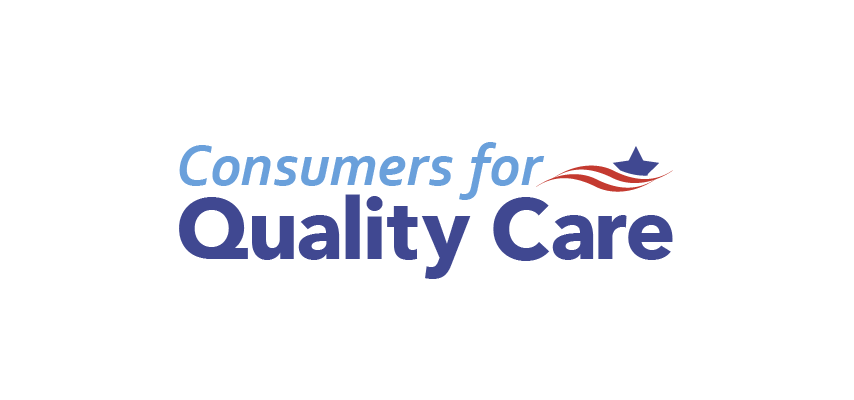Cut Consumer Costs Campaign Launched to Address Lack of Clarity, High Costs in Health Care Experience
By Consumers For Quality Care, on January 8, 2019

WASHINGTON – As the 116th Congress convenes in Washington, D.C., Consumers for Quality Care (CQC) is launching the Cut Consumer Costs campaign to further its mission of ensuring that patients – and their right to high-quality and affordable health care – remain at the forefront of the health care debate.
A recent survey from Ipsos on behalf of CQC found that consumers are deeply frustrated with the health care system. A broad, bipartisan majority of voters (77%) believe that policymakers are focusing on the wrong things to improve health care and they want a new approach from politicians to tackle costs and ensure greater clarity in the system. The survey also found that consumers believe the health care industry – including hospitals, insurers and pharmaceutical companies – have the greatest potential to make changes and to be more transparent about their pricing, profits and billing practices.
“There are several straight-forward, bipartisan outcomes that voters want and this new Congress, state legislators, and key players in the health care industry could make them a reality,” said Donna M. Christensen, M.D., Consumers for Quality Care board member and a former Member of Congress. “CQC’s Cut Consumer Costs campaign will shine a light on policies that strain consumers’ pocketbooks while padding the bottom lines of the health care industry,” she continued.
According to survey respondents, the most frustrating aspects of the health care system are hospital fees and unexpected bills (74 percent), insurance costs like premiums, copays and deductibles (71 percent) and out-of-pocket costs for prescription drugs (64 percent). As the Cut Consumer Costs campaign kicks off, we will highlight three areas at the emergency department, in the hospital and at the pharmacy counter that lawmakers and the health care industry can and should address to provide increased clarity, more comprehensive care and cost savings to health care consumers.
Those areas include:
- Emergency Department Policies: Some insurers are instituting policies that would force policy-holders to pay for an emergency room visit if the insurer later deems it a non-emergency, meaning patients will likely delay or go without emergency care rather than risk being unexpectedly required to pay ED costs out-of-pocket.
- Hospital Pricing: Hospital care is the largest single component of national health care spending in the U.S. Surprise bills, billing errors and vast swings in average prices for similar tests and procedures underscore the need for transparency in hospital pricing.
- Pharmacy Counter Issues: Practices like restricting pharmacists from informing customers that a lower price might be available by not using insurance and new insurance policies in which insurers no longer allow drug copay coupons to count towards patients deductibles mean consumers continue to be caught in the middle of industry disputes about price and transparency.
“Two in three Americans say they struggle with predicting how much they will have to pay for health care when they need it. They want more clarity and transparency to avoid getting hit with surprise bills and shocking fees,” Christensen continued. “As lawmakers get to work in Washington, we urge them to show voters that they heard their concerns and act swiftly to address them. We also call on the health care industry to reform practices that needlessly inflate consumer costs.”
The Cut Consumer Costs campaign will highlight an ongoing series of practices and procedures that should be changed to ensure higher-quality, lower-cost consumer health care. It will also provide tools like a tutorial on reading a health care bill and contact information for state insurance commissioners that consumers can use to take their health care into their own hands. Consumers can also sign a petition voicing their fatigue with partisan politics on health care, and calling for improved health care and lower health care costs as a major priority for elected officials and the health care industry.
To learn more about the CQC Cut Consumer Costs campaign, visit www.cutconsumercosts.org.
